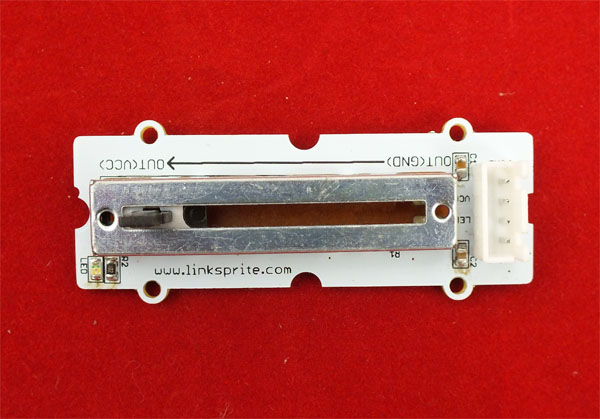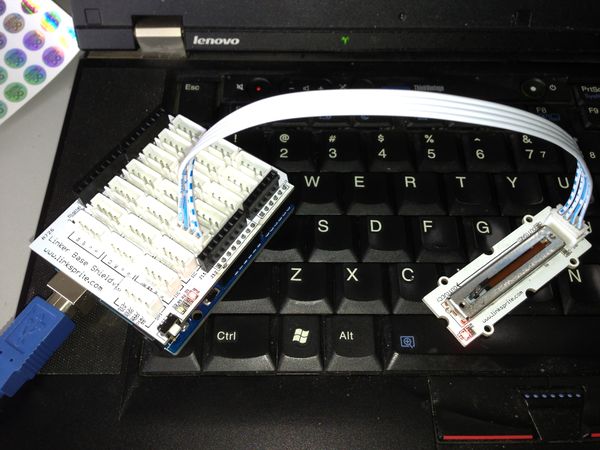Difference between revisions of "Linear/Slide Potentiometer Module"
Qian.zhang (talk | contribs) |
|||
| Line 1: | Line 1: | ||
| + | ==Introduction== | ||
| + | The slide potentiometer is a linear variable resistor with a total resistance of 10k. When you move the lever from one side to the other, its output voltage will range from 0 V to the VCC you apply. It has four pins, 3 of which are connected to VCC, GND and the ADC IN on the slide, while the remaining pin is connected to a red indicator LED. You can use the indicator LED to visually display the change on the potentiometer. | ||
| + | |||
[[File:Sliding potentiometer.jpg]] | [[File:Sliding potentiometer.jpg]] | ||
Revision as of 09:01, 8 April 2014
Contents
Introduction
The slide potentiometer is a linear variable resistor with a total resistance of 10k. When you move the lever from one side to the other, its output voltage will range from 0 V to the VCC you apply. It has four pins, 3 of which are connected to VCC, GND and the ADC IN on the slide, while the remaining pin is connected to a red indicator LED. You can use the indicator LED to visually display the change on the potentiometer.
Sample
<syntaxhighlight lang="c">
int adcPin = A0; // select the input pin for the potentiometer int ledPin = A1; // select the pin for the LED int adcIn = 0; // variable to store the value coming from the sensor
void setup() {
Serial.begin(9600); // init serial to 9600b/s
pinMode(ledPin, OUTPUT); // set ledPin to OUTPUT
Serial.println("Sliding Potentiometer Test Code!!");
}
void loop() {
// read the value from the sensor: adcIn = analogRead(adcPin); if(adcIn >= 500) digitalWrite(ledPin,HIGH); // if adc in > 500, led light else digitalWrite(ledPin, LOW); Serial.println(adcIn); delay(100);
}
</syntaxhighlight>
Here Linker Slide potentiometer is connected to [A0 A1 V G].
Schematics
How to buy
Here to buy Linear/Slide Potentiometer Module on store

